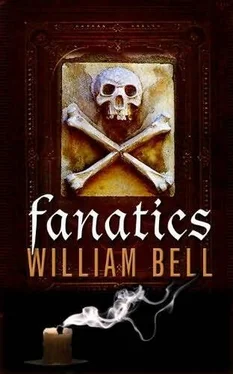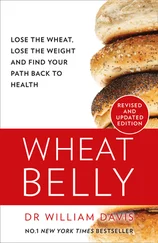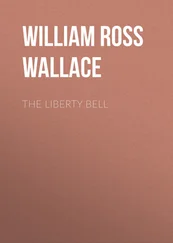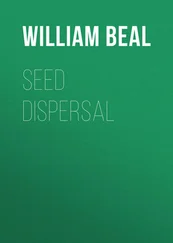But with the professor dead, why did the spirit hang around? Why involve me? That was the part of the puzzle that just wouldn’t fit. That was why I needed to take a break from the estate and its library, so I could think things through.
MOM WAS SITTING on the sun-splashed steps of the verandah lacing up her trainers when I sauntered out the door next morning.
“You’re up early,” she said, turning and squinting up at me.
“Lots to do,” I replied vaguely. “See you later.”
In the kitchen I prepared ingredients for a Spanish omelette and set them aside to await Mom’s return, then poured a second coffee and carried it outside to the driveway. I collected my toolbox, an old Dutch oven, some rags, and a few litres of motor oil from the garage, then rolled out the Hawk and pulled it up onto the centre stand. I set a low stool beside the bike, took a sip of coffee, and set the mug on the bike’s saddle.
Working on the Hawk was a little like cabinetmaking. It took my mind away. It required some knowledge and skill, asking me to think and remember. I puttered away in the shade of the ancient maple that stood beside the driveway, entertained by rustling leaves and the conversations of robins and sparrows.
I drained and replaced the crankcase oil, then spent half an hour or so adjusting and lubricating the chain, the clutch, and the brake cables. I wiped the bike down from front to back, taking extra time to polish the aluminum frame and swing arm. A motorcycle was like any machine-it liked to be clean, lubricated, and properly adjusted-but more so, because it operated outdoors in all weather, under conditions like yesterday’s, with dirt and dust and a certain amount of abuse.
Some people liked hard saddlebags on a motorcycle, but I preferred my old black leather bags with their chrome-plated lockable buckles. I polished them once in a while and cleaned them out with every oil change. Fetching the portable vacuum cleaner from its rack on the kitchen wall, I opened the right-side bag, half-surprised at what I found there. With everything that had been going on lately I had forgotten the bagged cellphone I had tossed inside in a panic to get away from the paintball camp.
I set it on the saddle beside my coffee and finished what I was doing. Up in my room, I took the phone from the bag and looked it over. It was a common, slightly upscale model you’d see anywhere. It was Internet-capable, but a quick look for emails or a search engine history proved that function had been unused. The call list contained a lot of city exchange numbers, but there were no photos stored in the unit.
What to do? Arriving at a decision took less than a second. I rejected calling a random number from the list and reporting that I’d found the cell. How would I explain my snooping around the paintball camp, trespassing, and discovering the phone? No, the phone would share the same fate as the GPS and end up in a garbage bin.
It was then that I remembered I hadn’t erased the photos I’d snapped out at the camp from my own cell. I turned it on and activated the camera and reviewed the few images I had of the camo-boys in the clearing. There was something about the picture of the leader that intrigued me.
I hooked the phone to my laptop and uploaded the pictures. On the bigger screen the details were much clearer. I focused on the leader, standing in the clearing, the cabin off his left shoulder, the tents to the side, his paintball gun hanging from a strap diagonally across his chest.
“Wait a minute,” I heard myself say.
I looked closely. I wasn’t an expert, but I could see that was no paintball marker. It was a machine pistol. A real gun. A lethal-and illegal-weapon.
I sat back in my chair, thinking, wondering what I had stumbled into out there in the bush. Downstairs, the front door opened and closed. Mom was back after her run.
“Anybody home?” she called out.
And then, like the pins and tails of a dovetail joint slipping into place, interlocking smoothly, a plan came together in my devious little mind.
BY THE TIME MOM padded into the kitchen on bare feet, a towel at her neck, I was placing her omelette on a plate beside a slab of toast. She poured a coffee and sat down. I slipped her plate in front of her and sat opposite, steeling myself for the conversation ahead.
“You’re not eating?” she asked.
I shook my head. “I ate earlier.”
“Umm.”
“Dad’s off giving a music lesson?” I asked.
Mom eyed me with suspicion. “You know he is.”
“Yeah, true. Guess I forgot. Temporarily.”
I lost the offensive after that. I was up against a pro. A pro journalist and-what’s even more intimidating-a pro mother.
She carved a wedge out of her omelette and chewed it slowly. “So,” she said, “what is it? You smashed up the car?”
“What? Smashed the-?”
“Emptied our bank account and sent the money to the Cayman Islands?”
“I-”
“You were arrested for peddling drugs to the kids down at the skateboard park?”
“Mom, I-”
“Because if this carefully staged intimate mother-and-son tête-à-tête is about me going to Herat…”
She raised her eyebrows inquiringly, her eyes boring into mine, then broke contact, pushed another bite of omelette into her mouth, and chewed silently.
“Mom, how could you? I just thought… no, it’s nothing to do with Herat. Not directly. Maybe mar ginally.”
“Very articulate,” she said, spooning blueberry jam onto her toast.
“What I mean is-” I tried again, but she cut me off.
“Not that I’m complaining about this wonderful breakfast and the rare opportunity to share it with my eldest son-”
“Mom, I’m your only son.”
“But I get the sense that there’s an ulterior motive at work here. An agenda.”
She popped a bit of toast into her mouth.
“There may be… there is. Sort of. An agenda, I mean. But not about Herat.”
“Umm-hmm.”
“At least, not directly.”
“Umm-hmm. You’re beginning to repeat yourself.”
“Mom, just let me talk, okay? You’re making me nervous.”
Mom leaned back in her chair, hooking one arm over the back. “I’m all ears.”
“I think you’re going to like this.”
“No sales pitch, okay? Just spit it out.”
“But first you have to promise to keep what I’m about to tell you secret.”
“Oh, please.”
“Listen,” I tried again, “you’re a reporter-er, journalist. I’ve got information that I know will interest you, but I have to be a whatchamacallit-an unidentified anonymous reliable source.”
“Fine. I promise.”
She wasn’t taking me seriously, but she would in a few minutes if I could lay out my information temptingly and clearly. Gaining confidence as I went along, I described finding the GPS on the shore. I reminded her about the drowned man we had read about in the morning paper a couple of days before. I told her about my visit to the hunt camp or whatever it was. The paintball splatters on the cabin. I fed her the facts without speculating. I knew she’d put it all together in a fraction of the time I had taken. And I kept something back-the two aces up my sleeve.
When I was done, I watched her face. She would have been a good poker player. Her features gave away nothing-another reason she was a killer interviewer. But I was her son. I’d been looking into that face since my cradle days. I paid attention to her eyes.
And I knew I had her.
“Let’s go into my study,” she said.
I GOT THE FULL-BORE professional interview. Mom opened her pad, leaned forward, and fired questions like nails, fixing times, places, facts, with no invitations to guess or suggest hypotheses. She took notes in her personal shorthand, which nobody else could decipher.
Читать дальше












